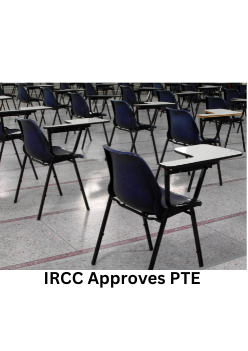Planning to apply to study for a Master’s degree in a university abroad? The application process to study abroad is long and can sometimes be a bit complicated.
But, worry not! Hurray's Overseas Education service is here to make things a lot simpler for you.
Today, we’re looking at a document that you will require for most university graduate programs, like MS or MBA – this is the letter of recommendation.
Keep scrolling to learn more!
What is a LOR and why do I need one?
A letter of recommendation or LOR, which is sometimes called a reference letter, is usually demanded by universities abroad.
It is an integral element of your application to your chosen degree program. You may also require an LOR if you are applying for a scholarship. You may be asked for 1 to 3 LOR’s.
The LOR is meant to be written by someone who knows you very well in an academic, or sometimes in a professional, space. It is meant to provide the admissions officials with a more in-depth view of who you are, and why you are the right person to study for your chosen degree or to receive the scholarship. While your resume and transcripts tell them the basic information about your grades and activities, the LOR adds a more personalised touch.
Who should I ask to write my LOR?
This is a good question, and a very important one. Choosing the right person or referee to write your LOR can play a huge role in ensuring that you get into your dream program.
The university will specify what kind of referee they expect. Typically, the referee must be someone you worked with in an academic setting, such as a teacher or a mentor. The person must be someone who is in a position to speak about your academic credentials, your skills and interests.
In certain cases, especially for a course where you require work experience, you will be asked to get your LOR from someone who you worked with in the workplace – like your immediate supervisor or boss. Again, this must be someone who is in a position to speak about your work.
How to choose your referee(s):
- The person must have a recognisable designation as someone with the authority to recommend you e.g. a Professor or Manager.
- The person must be someone who knows you well, and has worked with you closely in some way. For instance, for an academic LOR, the teacher who is supervising your final year project could be the right person to ask. A trusted mentor will also work well.
- Try to avoid asking someone who does not know you at all. For instance, while the Head of the Department in your subject may have the highest authority, he/she may not be able to speak about you in-depth, if he/she has not individually worked with you at any point.
- Another helpful tip is to pick a person with good subject knowledge in your chosen area. They will be able to speak in depth about why you deserve to study that subject at a higher level.
- Make sure that the person you choose has a good relationship with you! Try to avoid someone with whom you have fallen in trouble – unless you developed a good relationship with that person afterwards!
- Finally, make sure that the person you pick will be able to devote enough time to write your LOR. Some teachers may be too busy, while others may not be interested. Choose wisely!
How to approach your referee(s):
- Reach out to your referee well in advance: remember, an LOR takes time, and your referee needs enough time to work on it. Take the time to make a formal appointment with the chosen person, and clearly state what the purpose of the appointment is. This will ensure that he/she gives you enough time to discuss it. And in case he/she cannot write your LOR, they will be able to tell you immediately.
- Be prepared: once you have an appointment to discuss your LOR, make sure that you are fully prepared to explain the requirement to the person. Do not assume that they will automatically know how to write an LOR – yours may be their first!
You must first explain why you need the LOR. Explain the details of the course or the scholarship you are applying for. Then, explain what is required in the LOR, and go on to discuss those things – your credentials, skills and interests. It may be a good idea to prepare a document with all these details as well, so that the referee can keep it as a reference.
- Be clear about the deadline: make sure that the referee has at least a month in which to work on the LOR. Be very clear about when the LOR needs to be sent to the university. Try to arrange with your referee to submit it ahead of the deadline – in case there is an unforeseen delay later on, you will have time remaining. You can also politely ask when you can follow-up with your referee about the status of the LOR – he/she may ask you to give them a reminder, which you must do.
- Have a back-up: your first-choice referee may not be free or may be unwilling to write an LOR. This is a possibility you must be prepared for, and you must have someone else you can approach afterward. This is why it’s so important to reach out to them in advance!
What should my LOR look like?
Each university/program may have its own specific requirements. In general, the following guidelines will hold you in good stead. These are the details that you can share with your referee in your first meeting.
a)Crisp, clear, and to the point
The length of your LOR matters. It should not be too short, as it will seem that the referee has not put a lot thought into it. It should not be too long, as it may appear rambling and filled with unnecessary information. A length of about 200-250 words is ideal, although the university may specify a different word limit which you will have to follow.
b)Structure of the LOR
The LOR should be divided into paragraphs/sections, as follows:
- A paragraph where your referee explains who they are and their relation to you.
- Next, your referee will talk about and evaluate your interests, skills and your ability to study at the university, in your chosen program.
- Your referee should include examples of your achievements, including curricular, co-curricular and extra-curricular activity. An instance in which the referee has worked with you individually, such as in organising an event or writing a paper, will make a good addition. The referee should talk about what sets you apart from other students, and the unique contributions you have made.
- The LOR should end with a brief summary of why the referee believes that you are a good candidate for the university/program, or why you deserve to receive the scholarship.
c)Do not mention details from the transcript
Your grades and any other details which are already included in your marks cards or transcripts should not be repeated in the LOR. The LOR must tell the admissions officials something more about you that they cannot see in your marks card.
d)No personal or sensitive information
There should be nothing in your LOR that does not pertain to your academic/professional activities. Even if you and your referee share a candid relationship, anything that is irrelevant to the admissions officials should not be included.
How should I send my LOR?
Once the LOR has been written, it is time to send it to the university. Each university has its own requirements, and it is essential that you carefully read those requirements and follow them exactly!
The referee may have to upload it onto a designated internet-based platform, or may have to mail the physical copy. It may be included as part of your application, or it may have to be sent separately. Make sure that both you and your referee are fully aware of what needs to be done.
Try to ensure that the LOR is sent out in advance of the deadline, as far as possible.
If you found these guidelines helpful, you could stand to gain much more from our Overseas Education Consulting services! We provide assistance with the LOR and all other aspects of the application process to study abroad.
Book your free first session with us today! Reach out to us via info@hurrayedutech.com or call us
What other aspects of studying abroad would you like to know about? Comment your thoughts below!











Post Comments